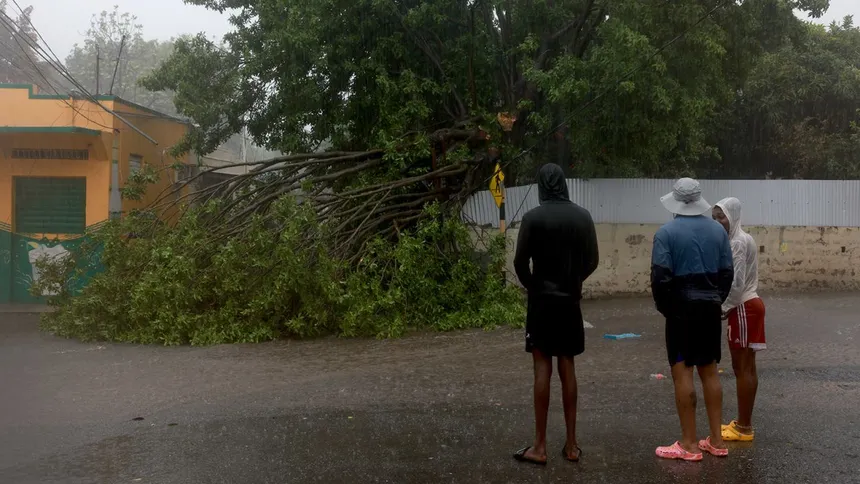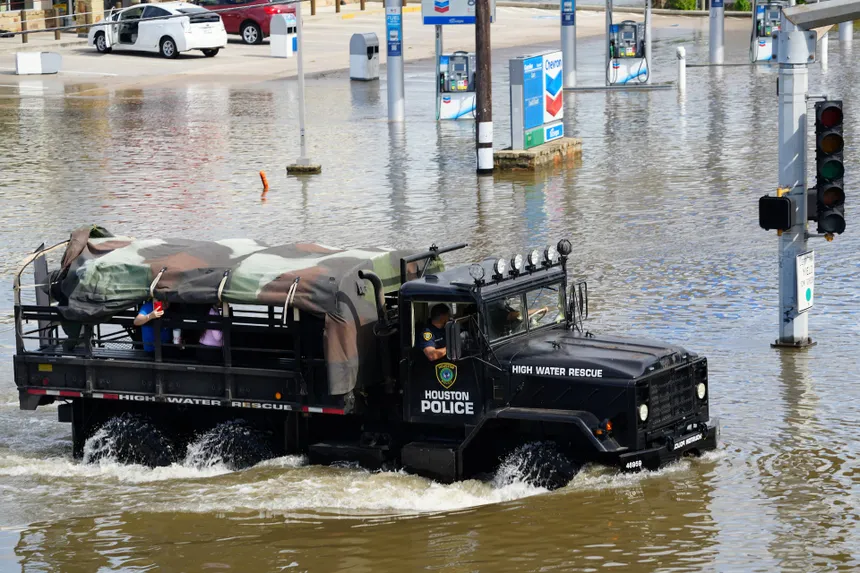Hurricane Beryl has left a trail of devastation across the Caribbean, wreaking havoc on Jamaica, Grenada, and St Vincent and the Grenadines. The category 4 storm brought strong winds and heavy rainfall, knocking out communications and causing widespread destruction. “It’s terrible. Everything’s gone. I’m in my house and scared,” said Amoy Wellington, a 51-year-old cashier who lives in Top Hill, a rural farming community in Jamaica’s southern St. Elizabeth parish. “It’s a disaster.”
The storm made landfall on Jamaica’s southern coast on Wednesday afternoon, bringing with it maximum sustained winds of 140mph. Almost 500 Jamaicans were forced to seek shelter by Wednesday afternoon, and Prime Minister Andrew Holness urged people in high-risk areas to move. “We have not seen the worst of what could happen,” Holness said. “We can do as much as we can do, as is humanly possible, and we leave the rest in the hands of God.”
The National Hurricane Center warned of life-threatening flash flooding and mudslides in Jamaica and southern Haiti, as well as dangerous winds and storm surge in the Cayman Islands. Jamaica’s Office of Disaster Preparedness and Emergency Management warned of storm surges potentially raising water levels to as high as 2.75 metres.
At least seven people have been killed across the region, with three reported dead amid floods in Venezuela, three in Grenada, and one in St Vincent and the Grenadines. The storm has also disrupted air travel and communication services in the affected areas.

Residents of Grenada and St Vincent and the Grenadines are now focused on relief, recovery, and rebuilding after the storm passed through their islands. Prime Minister Dickon Mitchell described “Armageddon-like” scenes of “almost total destruction” in Grenada, with approximately 98% of building structures damaged or destroyed and an almost complete wipeout of the electrical grid and communications systems.
Many people were forced to take shelter in unconventional places, including bathrooms and school classrooms. “It was a hard four hours battling with six of us in that little area,” said Sharon DeRoche, an evacuee from St Vincent and the Grenadines.
The storm has also drawn attention to the increasing severity of tropical storms in the Caribbean, which scientists attribute to global heating. “The climate crisis is pushing disasters to record-breaking new levels of destruction,” said Simon Stiell, the executive secretary of the UN climate change treaty, who is from Carriacou.

